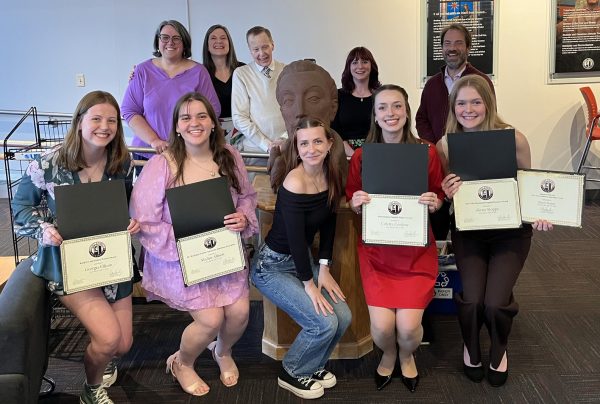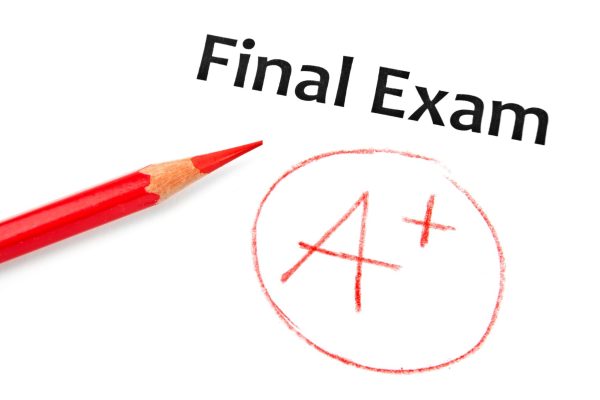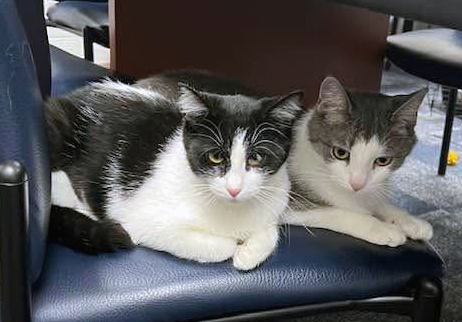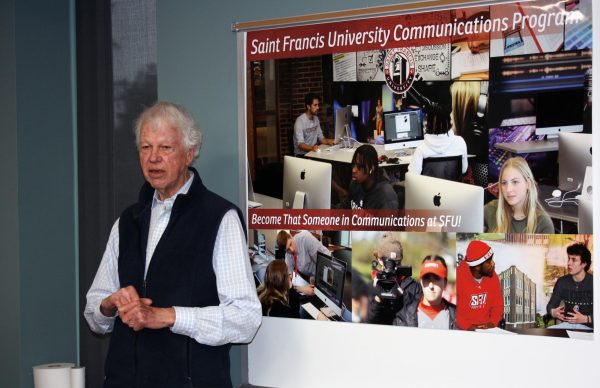SFU Celebrates Earth Day

“The Earth Day Carnival started at Saint Francis in 2004,” said Lane Loya, an associate professor of biology at the University.
“We hosted it in the bottom level of JFK – we only had 10 booths and 20 people showed up. It has really blossomed since then.”
The Environmental Action Society held its annual Earth Day Carnival on Tuesday, complete with T-shirts, games, green transportation, vermicomposting, wind energy, companion chickens and much more.
“I think our booth makes people wonder why they have such a hard time eating an insect, when they readily enjoy eating a cow or a chicken,” said Tim Bintrim, an associate professor in the Literature and Languages department.
“I love that we have a companion chicken at the fair as well. It is very eye-opening to realize that they can have personalities and can be affectionate like any other pet.”
Bintrim and his family have run the “edible insects” booth for the past five Earth Day carnivals. Their insect supplier is Don Bugito, an edible insect company located in San Francisco. Bintrim’s entire family abstains from the consumption of meat.
“Insects are an ecological substitute to beef and chicken; they make less methane and use less land and water,” said Bintrim. “It is a growing industry – a recent development is the ability to make flour out of crickets.”
One booth showcased an innovation by two European inventors – Bios Urn, a biodegradable urn that uses soil and cremation ashes to grow a tree from the remains of your loved one.
“You can take the body or ashes of the deceased and grow a tree from a completely biodegradable container,” said Sara Dietrich, a student volunteer.
“It has an irrigation system, temperature controls, and this is all controlled via an app that you can use on your phone.”
Conventional burials in the United States use 827,060 gallons of embalming fluid, 30 million feet of hardwoods, 2,449 tons of copper and bronze, 94,593 tons of steel and 1.5 million tons of reinforced concrete annually.
“This approach to burial can dramatically cut the rate of deforestation across the world and save valuable resources,” said Dietrich.
“It is also symbolically positive and will bring more greenery into the world. What’s better than that?”




